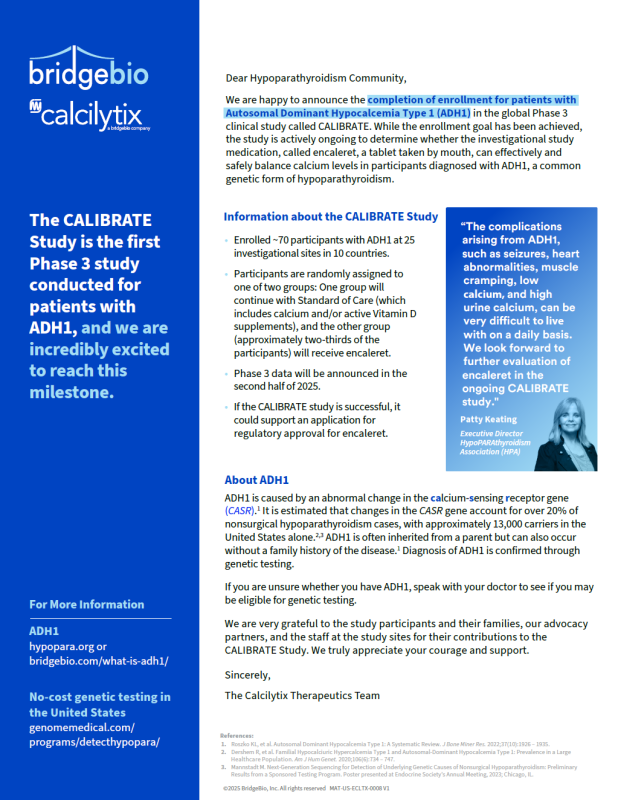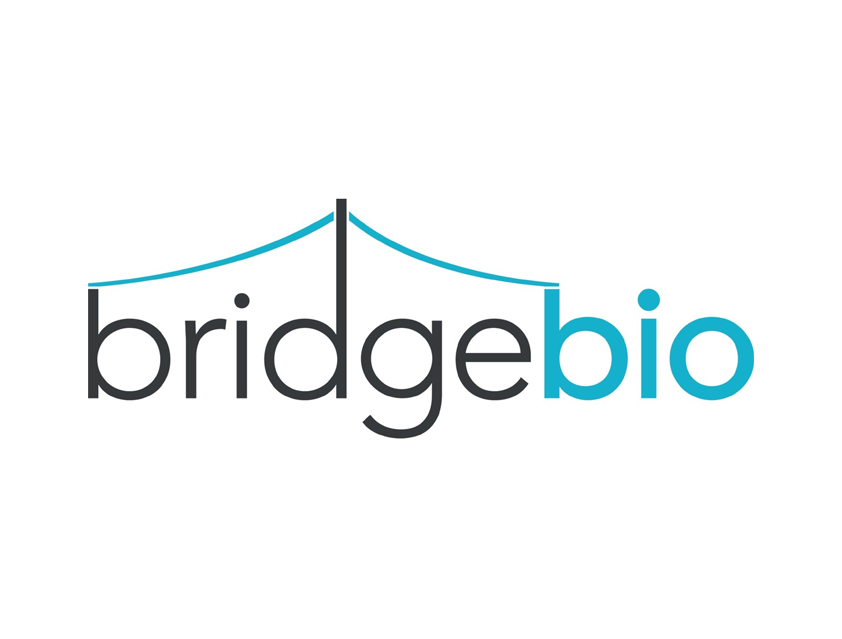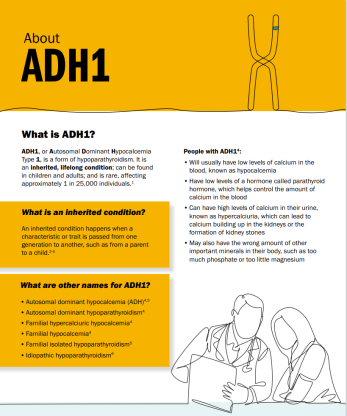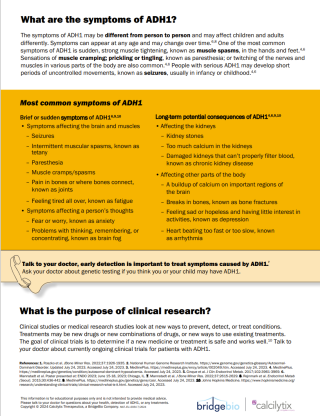Calcilytix Therapeutics is a clinical-stage biopharmaceutical company based in California, USA. We are an affiliate of BridgeBio Pharma, whose goal is to create life-altering medicines that target well-characterized genetic diseases at their source.
Calcilytix is investigating Encaleret as a potential treatment for ADH1 (autosomal dominant hypocalcemia type 1), a genetic cause of hypoPARAthyroidism. Encaleret is an investigational, orally-administered small molecule designed to specifically inhibit the calcium-sensing receptor, with the goal of normalizing serum calcium and lowering urine calcium. Encaleret is not yet approved by the FDA or any other regulatory authority to treat ADH1.
Together with physicians and the community, the Calcilytix team aims to develop an effective treatment option for people living with ADH1, the most common genetic form of isolated hypoPARA.
To learn more about our company and ongoing clinical studies, please visit www.bridgebio.com. Also, be sure to check out www.calcilytix.com and www.detecthypopara.com.
Dr ordered genetic testing NO COST This kit must be ordered by your doctor
Free Genetic Testing & Counseling without a Dr. order This kit can be ordered without your Dr. but you must speak to a genetic counselor first. Scheduling is quick and easy just click the link.
ABOUT ADH1
People with autosomal dominant hypocalcemia type 1 (ADH1) carry a gain-of-function variant in the CASR gene, which encodes the calcium-sensing receptor protein (CaSR).2 CASR variants have been found to account for more than 20% of nonsurgical hypoparathyroidism cases, with an estimated 13,000 carriers in the US alone.3,4 ADH1 is often passed down from parent to child but can occur without a family history of the disease.2
The CaSR constantly monitors and balances blood calcium (Ca2+) levels by regulating parathyroid hormone (PTH) secretion and calcium (Ca2+) reabsorption in the kidneys.2,5 In ADH1, the genetic variants cause the CaSR to be more sensitive and responsive to calcium. As a result, low blood calcium levels are detected as “normal” by the CaSR.2 This false physiological perception leads to decreased secretion of PTH, low levels of calcium in the blood (hypocalcemia), and high levels of calcium in the urine (hypercalciuria).2,5
CLINICAL FEATURES OF ADH1
People with autosomal dominant hypocalcemia type 1 (ADH1) typically experience hypocalcemia, hypercalciuria, and inappropriately low levels of PTH.2 Symptoms of hypocalcemia may include severe muscle cramps, muscle spasms (tetany), a burning or prickling sensation in the hands or feet (paresthesia), and seizures.2 Hypercalciuria may result in kidney calcification (nephrocalcinosis), kidney stones (nephrolithiasis), and kidney failure.2,5
BridgeBio Reports Positive Phase 3 Topline Results for Encaleret in Patients with Autosomal Dominant Hypocalcemia Type 1
Topline Data Press release
Clinical Trials
Clarify Disease Monitoring Study
Study of Encaleret on post surgical patients

ADH1 Brochure





